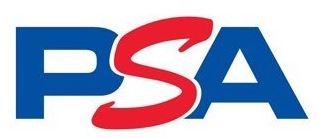
There’s huge demand for collectable card grading in the hobby; Card Grading is a big part of the trading card industry, and the top grading companies have to make sure they have the personnel to keep up with the demand.
There’s potentially an opportunity for enthusiasts to make their hobby become their job, by becoming a full-time card grader. While there isn’t an actual qualification for trading card grading, there are required traits, like good attention to detail, as well as experience with cards; I’ll cover all that in more detail in this post.
Table of Contents
How Do I Become A Card Grader?
In short, to become a professional, full-time card grader, you need to get hired by a recognized card grading company.
There isn’t a special card grading certification to complete and earn because every grading company has different scales and requirements. So each grading company’s hiring process will involve tests specific to their grading services.
Here’s a look at what PSA require on their job descriptions for graders:
- Firsthand knowledge of trading cards, tickets and other sports, non-sports and TCG collectibles.
- Expert in the various counterfeits and counterfeiting/card doctoring methods that exist in the card industry (across all categories).
- Expert-level understanding and comprehension of the card grading system and standards.
- Exhibit strong research skills.
- Detail oriented and ability to focus over long stretches of time.
- 1 – 3 years of direct grading experience as a professional, dealer or collector.
Ultimately, you’ll need to teach yourself about card grading, as well as counterfeit and alteration detection, but here’s some of the things you’ll need:
Attention To Detail
Grading companies won’t just hire anybody to become a grader for them. They have to ensure they’re hiring somebody who knows what they’re doing, so that they can up-hold high standards that they have a reputation and are trusted for.
They can’t afford for many mistakes to be made, if too many 10s started getting handed out by graders at Beckett or PSA for example, then they would damage the company’s reputation for high-quality and fair grading. If that happens, then collectors wouldn’t trust their grades as much, and fewer people would use the service.
So, while each grading company will be slightly different based on their grading scale, you need to have certain traits to give yourself the best possible starting point.
Card grading requires someone with good attention to detail, the difference between some grades can be minor surface scratches, for example, so having the ability to spot minor imperfections is important – That also requires good eyesight.

Image: collectors.com
Experience Assessing Cards
With the volume of cards being submitted now, you’ll also need to be able to grade efficiently, without sacrificing quality of grading. Efficiency will come from experience in grading, and understanding what different conditions equate to on the grading scale.
A good way to get experience grading cards, before making it a profession, is to self-grade raw cards, and submit them for grading afterwards to see how accurate you are. Once you’ve been in the card hobby long enough, and you’ve handled and seen hundreds of different graded cards, you start being able to accurately predict a card’s potential grade.
As I mentioned earlier, grading companies have tests within the hiring process to check whether you can give a card a suitable grade. So you’ll need to spend significant time in the hobby and handling cards, to get to that point.
There’s also lots of resources online these days, like Youtube videos, to help learn what a particular grade looks like.
Graders generally look at four key areas of a card when assessing its grade: Corners, Edges, Surfaces and Centering.

Relationships In The Hobby
Card graders are people who collect cards themselves, and have been in the hobby a while. If you want to become a grader, it’s a good idea to build relationships within the hobby and get experience around all types of different cards.
Going to card shows, like The National, is a good way to get exposure to working with cards, and even seeing card grading being done in person by the likes of PSA. Another good idea is to start with a job at a local card store, grading companies will like the fact you’ve worked professionally with cards before.
All professional card grading is also done on-site, so another factor to consider is how close you live to the grading company you desire to grade for.
How Do You Become A PSA Grader?

If you have the base traits, that I’ve mentioned, to become a card grader and experience with cards then you’re well on your way to becoming a PSA card grader, providing you live close enough to one of their sites.
Along with Beckett, PSA is one of the biggest and well-known grading companies. The constant increase in demand and volume means they’re often hiring new people.
The first thing to do is familiarize yourself with their grading scale and learn their criteria, which can be found on their website, with a description of each grade.
It’s also a good idea to then self-grade some cards, and submit them to PSA to see the accuracy of your grading.
Then you just need to apply for a role – PSA advertise job opportunities through their website, so check if there are any openings.
How Do You Become A Beckett Grader?

Again, if you have the necessary traits and experience to become a trading card grader, and you would like to grade for Beckett, then you’re off to a good start.
Similar to PSA, Beckett also has details of their grading scale on their website (although you’ll need to have an account), so familiarize yourself with that and try self-grading some cards, submit them to Beckett, and see how accurate you are on their scale.
Beckett also has a published article on their website talking about what it takes to become a Beckett grader which is well worth reading.Once you feel ready to start grading for Beckett, apply for open roles through their website.
How Much Do Card Graders Make?
Card graders earn anywhere between $16k-35k, with the average being towards the lower end of that.
A card grader’s salary is dependent on experience. Top card graders, who have plenty of experience, can earn nearer $35k.
Can I Grade My Own Cards?
Yes, you can self-grade your own cards to practice, however the card will still be considered a raw and ungraded card by others, and should be listed on auction as such, until it is graded professionally and encased by one of the grading companies.
You can get a card grading kit to help inspect cards more thoroughly.
If you self-grade a card, it’ll be a matter of your opinion (which, truthfully, is likely to be biased). Collectors trust cards that are graded and encased by brands they know, like PSA & Beckett, because they can be sure a third party, and experienced, professional has given the card an unbiased and fair grading – That’s what gives a graded card it’s extra value.
Final Thoughts
It’s worth noting that grading cards professionally won’t be all about grading super rare, and high-value cards. There’ll be hundreds of common cards in average condition to be graded.
Some grading companies are also now turning to software and AI to grade cards, like HGA and even PSA, so if that becomes established and successful, then the need for human card graders might drop and the security of a card grading job could become less certain.
However, making your hobby also your profession is always a good idea, so hopefully this has helped get you started.

